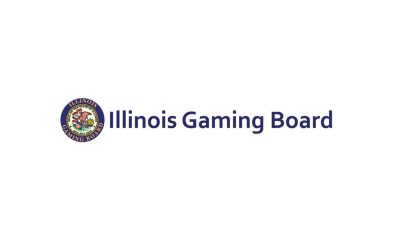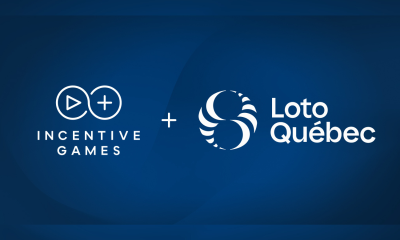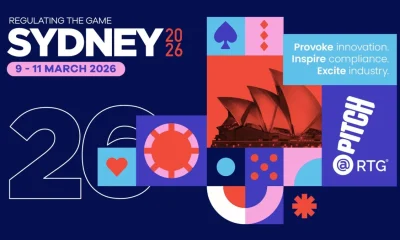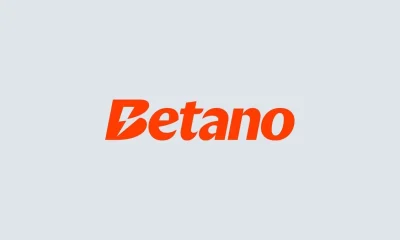Gaming
EUROPE’S VIDEO GAMES INDUSTRY PUBLISHES ANNUAL KEY FACTS REPORT: AUTHORITATIVE DATA ON THE SECTOR FOR 2020
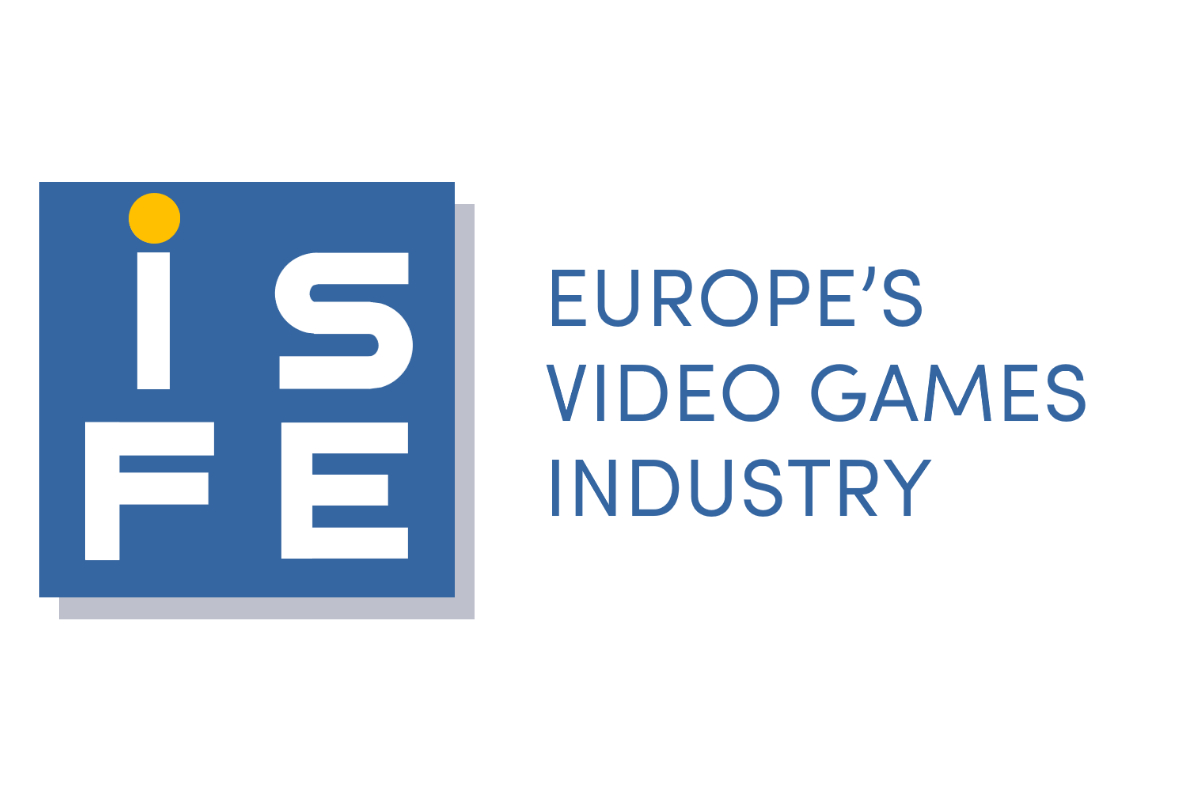
Ahead of the world’s biggest online video games event, gamescom, on 25-28 August, and following an unprecedented year of challenges, ISFE (Interactive Software Federation of Europe), and EGDF (European Games Developer Federation) publish their first collaborative set of “Key Facts”. The report represents the pooling of European industry data, from the smallest European studios to the biggest companies, creating the most concise and complete picture of Europe’s video games sector to date.
ISFE Chair Olaf Coenen said: “There’s no doubting the challenges we have all faced during the global pandemic but our industry has been uniquely positioned to support society by connecting people whilst they were physically apart. We have provided vital points of social connection and interaction, provided entertainment, distraction and much needed escapism. We have helped keep our players mentally and physically well, supported education initiatives, leveraged our reach to communicate public health messaging and made financial contributions to relief funds. All the while, we have remained unfailing in our efforts to drive progress in diversity, support the global environmental agenda and maintain our commitment to responsible gameplay and child safety. In so many ways we have been able to bring people together and highlight the depth to which video games can be a force for good.”
EGDF President Hendrik Lesser said: “During 2020 the games industry went through one of the biggest transformations in its recent history. Onsite meetings, developer gatherings and conferences suddenly took a big shift towards remote work that brought completely new management and mental health difficulties. Especially early-stage entrepreneurs faced new challenges that were endangering the future of their companies.
“Now in 2021, I’m incredibly proud of what our industry as a whole has been able to overcome. We demonstrated that, despite these difficulties, we are not only among the most pandemic-resistant sectors in our society but even managed to thrive greatly and are now well-positioned to be a driving force in Europe’s economic recovery.”
Key Facts 2021 highlights
- Revenue in the whole of the EU and the UK is €23.3bn (€17.6bn in the key European markets surveyed by GameTrack (IPSOS MORI))
- European revenue grew by 22% compared to 18% in 2017, 15% in 2018 and 3% in 2019
- Consoles continue to drive a large part of total revenues (accounting for 44%). Digital revenues continue to grow, representing 80% of total revenue (76% in 2019)
- More than 50% of Europeans aged 6-64 play video games. The average age of video game players in the EU is 31 years old and the fastest growing age group is 45-64
- During the pandemic, the esports audience grew by 9.82%
- Women account for 47% of video game players in the EU
- The sector provides 86,953 jobs across Europe[1]
- Average weekly video game playtime increased during lockdowns but reverted to pre-pandemic averages when restrictions eased
- ISFE has become a corporate ambassador of Women In Games and joined the United Nations-facilitated Playing for the Planet Alliance
- Pan-European self and co-regulation for minor protection: 38 countries in Europe use the PEGI age rating and descriptor system for video games and we now have 14 national consumer education programmes in place across Europe to raise awareness of PEGI, parental control tools and responsible gameplay
- 97% of parents of video gameplaying children monitor their children’s in-game spending
(2019 data)
Powered by WPeMatico
Christer Fahlstedt
Paf has halved its loss limit since 2018

Nordic gaming operator Paf is taking another decisive step toward responsible gambling by lowering its mandatory annual loss limit for all customers from €16,000 to €15,000. The move is part of a long-term strategy focused on sustainability, player protection, and ethical revenue growth.
With this latest reduction, Paf has now cut its original loss limit—first introduced in 2018 at €30,000—by 50%. The mandatory cap applies across all gaming categories and to every platform operated by the company.
“We are extremely proud that through concrete actions and long-term investments in responsible gaming, we have now halved the first loss limit we introduced in 2018,” said Christer Fahlstedt, CEO of Paf. “It clearly demonstrates that we are serious about our ambition to be a sustainable entertainment company.”
Long-term ambition: €8,000 annual loss limit
The new €15,000 threshold represents another step toward Paf’s previously stated long-term goal of lowering the annual loss limit to €8,000 per player.
“We have been transparent about our ambition to lead the development toward a healthier gaming market,” Fahlstedt added. “Unlike many operators, we are prepared to say no to revenue that comes from unsustainable gaming. However, this transition must happen gradually to ensure long-term stability in a highly competitive market.”
High-intensity player segments phased out
As part of the reduction, Paf will continue to reshape its customer segmentation model. Revenue from the so-called orange segment—players with annual losses between €15,000 and €30,000—will be phased out entirely over time.
Paf has already eliminated revenue from its red segment, which previously consisted of customers losing more than €30,000 annually. The latest changes further reinforce the company’s shift away from high-intensity gambling behavior toward more sustainable play levels.
“Removing the orange segment is a deliberate and important decision,” said Daniela Johansson, Deputy CEO and Chief Responsibility Officer at Paf. “It clearly signals that we do not want revenue that isn’t sustainable over time—especially when our mission is to create long-term benefits for society.”
Call for shared limits across the industry
In addition to mandatory loss limits, Paf customers can set their own voluntary lower limits. While these safeguards have proven effective in curbing harmful behavior, Paf emphasizes that broader industry action is needed.
“Loss limits have a real and measurable impact on player behavior and can stop problems before they escalate,” Fahlstedt said. “But customers can easily switch operators. That’s why common national deposit limits are essential, and why unlicensed gambling must be addressed.”
Paf was the first international gaming operator to introduce mandatory loss limits, and the company continues to advocate for stronger, shared responsibility standards across regulated markets.
The post Paf has halved its loss limit since 2018 appeared first on Eastern European Gaming | Global iGaming & Tech Intelligence Hub.
Circus Jackpot
TaDa Gaming Releases Circus Jackpot

Award-winning TaDa Gaming has built a name for delivering differentiation for operator platforms with its unique fish-shooting games. Combining the thrill of cinematic video animations with recognisable casino mechanics, these multiplayer games offer a new way to play and win with skill-influenced challenges and in-game progression.
Latest release, Circus Jackpot, takes the action into the Big Top Tent for a fantastical procession of characters, creatures and Awakening Bosses, each one bringing multipliers and triggering bonus games when players successfully take them down.
And this is no ordinary circus: shoals of lower value fish swirl around the tent to bring easy win multipliers from 2x – 20x while Giant Medium Fish raise the game to 80x and the Golden Killer Whale offers up to 100x.
A colony of crabs including Bomb, Drill, Hammer and Wheel versions can each deliver a unique effect when triggered. The Hammer Crab can unleash the power of thunder and the Wheel Crab triggers a bonus roulette game for up to 800x; while the Bomb Crab will detonate a chain bomb attack and the Drill Crab will penetrate through the crowd for maximum impact on explosion.
Players can be strategic on timing blasts. Capturing the Lightning Chain Fish will trigger the Lightning Chain and take out fish, one by one; while the Vortex Fish will create a sea of swirling water that sucks all the surrounding creatures into it.
With up to four players in Circus Jackpot at any time, the first shots are fired from Rocket Cannon positions. Each shot builds up the Free Deep Sea Whirlpool weapon which can be strategically used for full screen wipeouts; while a random Flame Bomb can also trigger, adding to the excitement and win potential.
Weaponry is further enhanced by the Tiger Power and Dragon Power uplifts, designed to take down the Awakening Bosses. These are the Mermaid (100x – 1200x); the Ghost Ship (100x – 1200x); the Thunder Dragon with up to 1980x; and the Wild Hog(60x – 2500x).
Capture any of these Bosses and watch their effects from performances and collisions to raise the multiplier, to the Wild Hog bonus game of Tug of War, where the generous piggy will give 60x – 200x to losers while winners can pull 220x – 2500x.
New characters to appear in Circus Jackpot include the Cash Clown and King Tiger. Targeting the unicyclist Cash Clown will build the multiplier to 350x while a successful shot will make the Clown spin his magic hat in a superb bonus game animation and pull out Coins (10x), White Rabbits(20x – 150x) or the King Tiger Boss, who brings the biggest game multiplier of all.
King Tiger is the star of the show. His party piece is to jump through the Consecutive Fire Rings and Colour Fire Rings at high speed, increasing the multiplier as he soars through the hoops.
Each mile covered is shown on the screen in a spectacular animation. And if King Tiger Boss can clear all the hoops in the challenge, he’ll provide up to a staggering 4800x win potential.
With Mega, Major and Mini jackpots also to be won, this is the new shoot and win game that will have players glued to the screen.
A straightforward UI holds all the controls, with added features for Aim to target specific creatures and Auto to create target lists, giving players strategic agency. Simple rules and descriptions of the characters and their effects make onboarding easier and enable players to get straight into the action with Circus Jackpot.
Sean Liu, Director of Product Management, TaDa Gaming, said: “TaDa’s glocalisation skills enhance our standing as the No.1 provider for fish-shooting. Circus Jackpot takes the highlights from the fish-shooting genre and seamlessly builds in new Bosses and features to deliver big potential in an expertly localised adventure to suit all player levels.”
Available in over 15 languages with 100+ currency choices, Circus Jackpot is available to play from 10th February 2026.
The post TaDa Gaming Releases Circus Jackpot appeared first on Eastern European Gaming | Global iGaming & Tech Intelligence Hub.
Brazil
Brazil: Regulation, market dynamics and tax pressure shape a new phase for iGaming

The past week has clearly highlighted how the Brazilian iGaming and sports betting market is moving into a more structured, institutionalized and, at the same time, more demanding phase.
Decisions by the federal government, official data released by the Ministry of Finance, and private initiatives focused on regulatory intelligence point to an ecosystem that is leaving behind its experimental stage and entering a cycle of regulated consolidation.
More than isolated developments, recent events reveal a shift in posture by both public authorities and market participants.
Brazil is no longer treating the sector merely as a new source of tax revenue, but increasingly as an industry that requires governance, legal predictability, systemic oversight and clearly defined enforcement mechanisms.
This approach repositions the country on the international radar, bringing it closer to more mature jurisdictions and raising the level of responsibility for all stakeholders involved.
At the same time, the rapid expansion in the number of authorized operators, the broadening of the regulatory scope beyond B2C activities, and the advancement of the tax debate are creating a more competitive and selective environment.
Operating in Brazil continues to offer scale and growth potential, but it now requires strategic planning, robust compliance capabilities and continuous monitoring of the political and regulatory landscape.
The themes that defined the week help illustrate how Brazil is laying the foundations for its new phase in iGaming — one in which growth, institutional control, market intelligence and tax pressure move in parallel and begin to define who is truly prepared to remain and compete in the medium and long term.
Regulation moves beyond operators
One of the most relevant developments of the week was the launch of a public consultation by the Ministry of Finance to discuss regulatory requirements applicable to suppliers within the betting and iGaming sector.
The initiative is being led by the Secretariat of Prizes and Betting (SPA), the body responsible for implementing and supervising the regulated market, currently operating under the Ministry headed by Fernando Haddad.
Until now, Brazil’s regulatory process has been heavily focused on B2C operators.
With the new consultation, the scope expands to encompass the entire value chain that supports the ecosystem, including technology providers, gaming platforms, aggregators, betting systems, payment methods, KYC, AML, anti-fraud and compliance solutions.
In practical terms, the government is signaling its intention to establish minimum operating criteria, technical responsibilities and compliance standards for suppliers as well, reducing grey areas and operational risks.
The proposal
The proposal follows the logic adopted in more mature regulated markets, where oversight is not limited to consumer-facing offerings but extends to the technological and financial infrastructure behind the operation.
For supplier companies, this represents a significant structural shift.
In addition to increasing adaptation and compliance costs, regulation is likely to redefine commercial relationships, requiring closer alignment between licensed operators and their technology partners.
At the same time, it creates a more predictable environment, with clearer rules and lower exposure to regulatory risk in the medium and long term.
The move also reinforces a clear political message: Brazil does not intend to build its regulated market with a purely permissive or revenue-driven approach.
The expansion of the regulatory scope indicates a strategy of systemic control, aimed at sustainability, operational integrity and greater institutional credibility in the eyes of investors and international bodies.
Official operator list confirms accelerated expansion in Brazil
The publication by the Ministry of Finance of an official list of 184 platforms authorized to operate in Brazil’s regulated online betting market confirms the speed at which the sector has expanded since the new legal framework came into force.
The list, released by the Secretariat of Prizes and Betting (SPA), includes operators deemed eligible to operate in the country under the rules established by the federal government.
The figure is striking not only for its size, but for what it represents in terms of competitiveness and market maturity.
In just a few months, Brazil has moved from a largely unregulated landscape to a formally structured ecosystem, with authorization criteria, compliance requirements and centralized supervision.
According to the Ministry of Finance itself, the publication of the list aims to provide market transparency, guide consumers and signal which companies meet the legal requirements to operate while the licensing process is finalized.
It also serves as a tool to organize the sector at a time of transition from an informal market to a fully regulated model.
As the ecosystem becomes increasingly crowded, simply holding a license ceases to be a competitive advantage and becomes a minimum condition for remaining in the market.
Competition is likely to shift toward factors such as operational efficiency, financial robustness, brand positioning, cultural adaptation to the local audience and the ability to operate within a more stringent regulatory environment.
For international operators, the list also serves as a barometer of global appetite for the Brazilian market, now viewed as one of the most promising — and simultaneously most challenging — among newly regulated jurisdictions.
The full list of authorized platforms is available on the official federal government website.
Data and Intelligence take center stage
Oddsgate launches “Brasil On Track”, a strategic platform for Brazil’s regulated iGaming market
Oddsgate has announced the launch of “Brasil On Track”, a strategic platform designed to help operators and ecosystem participants navigate Brazil’s regulated iGaming market.
The initiative was presented on February 5, 2026, at a time when Brazilian regulation marks its first year under Law 14.790/2023, which introduced greater legal clarity, a defined tax structure and compliance requirements for the sector.
“Brasil On Track provides real-time monitoring of regulatory milestones, market indicators and operational requirements, connecting legal updates to direct business impact and linking directly to official sources,” Oddsgate stated in its launch announcement.
The platform was designed to transform regulatory complexity and legal obligations into a continuous, accessible intelligence framework.
Its features include:
- live tracking of regulatory updates and pending legislation; an operational map translating legal changes into practical compliance actions
- market intelligence on player demographics and key performance indicators
- visibility into tax structures, licensing stages and market entry requirements; and specific focus areas covering KYC (Know Your Customer), AML (Anti-Money Laundering), self-exclusion tools, consumer protection and responsible gaming.
According to Oddsgate’s Director of Regulatory Affairs, Valter Delfraro Jr., Law 14.790/2023 marked a milestone that “ended years of uncertainty and provided legal security and operational clarity.”
He emphasized that this new phase places Brazil’s gaming sector on equal footing with mature markets, increasing international competitiveness and attracting global investors.
“We have transformed regulation into a practical, ongoing guide to operating in Brazil with less risk and greater clarity,” added Wagner Fernandes, Oddsgate’s Chief Marketing Officer, noting that the platform is designed to equip teams entering, expanding or optimizing operations in the country.
The launch of “Brasil On Track” comes amid a rapidly evolving regulatory environment in Brazil, where, according to official data from the Ministry of Finance, the sector generated approximately BRL 36 billion in gross gaming revenue between January and September 2025, with BRL 3.3 billion collected in federal taxes during the same period — highlighting the scale and dynamism of the national market.
The arrival of this tool reflects a growing demand for structured market intelligence, indicating that operators and suppliers are seeking not only news and updates.
But solutions capable of integrating regulatory data with real-time operational and strategic insights.
Taxation moves to the center of the debate
While regulation advances and the market becomes more organized, the tax debate has emerged as one of the most sensitive issues of the moment, both for the government and for industry participants.
The possibility of a total tax burden of up to 42% on iGaming and sports betting is no longer merely theoretical; it is being actively discussed with direct political and economic implications — including in exchanges between Finance Minister Fernando Haddad and industry representatives.
Commenting on proposals to increase taxation, Pietro Cardia, legal director of the National Association of Games and Lotteries (ANJL), warned that tax hikes above international standards could undermine the economic performance of companies operating legally and compliantly in Brazil.
João Fraga, CEO of payment solutions provider Paag, highlighted that tax changes in such a young market could directly impact business strategies, particularly less than a year after operations began under the new regulatory framework.
Organized industry groups have also publicly reinforced the need to balance tax collection with the sector’s ability to compete in a market where illegal operators remain strong.
Organizations such as the Brazilian Institute for Responsible Gaming (IBJR) stress that if tax policy focuses solely on revenue generation without a parallel strengthening of enforcement against unlicensed operators, regulated players may lose ground to the informal market, increasing risk and eroding fiscal revenues.
This discussion returns to the center of the agenda at a time when the Ministry of Finance and the National Congress are debating broader fiscal adjustments in the country — debates in which betting taxation has been explicitly mentioned as part of wider revenue-raising proposals.
The weight of this tax burden is being assessed not only in numerical terms, but also in terms of its impact on investment in product development, technology, compliance and consumer protection, placing operators and suppliers in a dilemma that goes beyond a simple cost calculation.
A larger, clearer — and more demanding market
The week’s developments point to a common denominator: Brazil is rapidly moving toward a more structured, but also more rigorous, regulated market. There is greater legal clarity, stronger institutional control and increased competition, but also higher costs and far less room for improvisation.
For those monitoring Brazil as part of an international strategy, the moment calls for careful analysis. The country continues to offer scale and potential, but now demands regulatory maturity, fiscal planning and a long-term perspective.
The consolidation of iGaming in Brazil is entering a decisive phase.
The combination of broader regulation, growth in the number of operators, professionalization of market intelligence and rising tax pressure is shaping a more predictable — and at the same time more selective — environment.
Brazil is definitively leaving behind the status of a disorganized emerging market and operating under clearer rules and constant oversight.
For companies viewing Brazil as part of a global strategy, this is a moment that requires measured reading and well-calibrated decisions.
Scale potential remains high, but so do entry and operating costs, along with the need for compliance, efficiency and differentiation.
The market is likely to continue growing, but in a more rational manner, favoring players prepared to operate in a regulated, competitive and increasingly tax-intensive environment.
The post Brazil: Regulation, market dynamics and tax pressure shape a new phase for iGaming appeared first on Americas iGaming & Sports Betting News.
-

 Compliance Updates5 days ago
Compliance Updates5 days agoIllinois Gaming Board and Attorney General’s Office Issue more than 60 Cease-and-Desist Letters to Illegal Online Casino and Sweepstakes Operators
-

 Canada5 days ago
Canada5 days agoINCENTIVE GAMES PARTNERS WITH LOTO-QUÉBEC TO LAUNCH REAL-MONEY GAMES IN THE PROVINCE OF QUÉBEC, CANADA
-

 Australia5 days ago
Australia5 days agoRegulating the Game 2026 Sydney — One Month Countdown as Sector Leaders Anticipate Inaugural RTG Global Awards
-

 Latest News5 days ago
Latest News5 days agoLaunch Of A Fresh Online Casino Guide 2026
-

 Always Up! x100005 days ago
Always Up! x100005 days agoRing in the Chinese New Year with BGaming’s Seasonal Promotion
-

 Latest News5 days ago
Latest News5 days agoVolcano Power — Hold & Hit 3×3 from Spinomenal
-

 Affigates5 days ago
Affigates5 days agoSoftConstruct AI and Affigates Bring Cutting‑Edge Solutions to AIBC Eurasia 2026 in Dubai
-

 Accra5 days ago
Accra5 days agoKaizen Gaming Launches Betano in Ghana — 20th Regulated Market & Responsible GameTech Expansion




